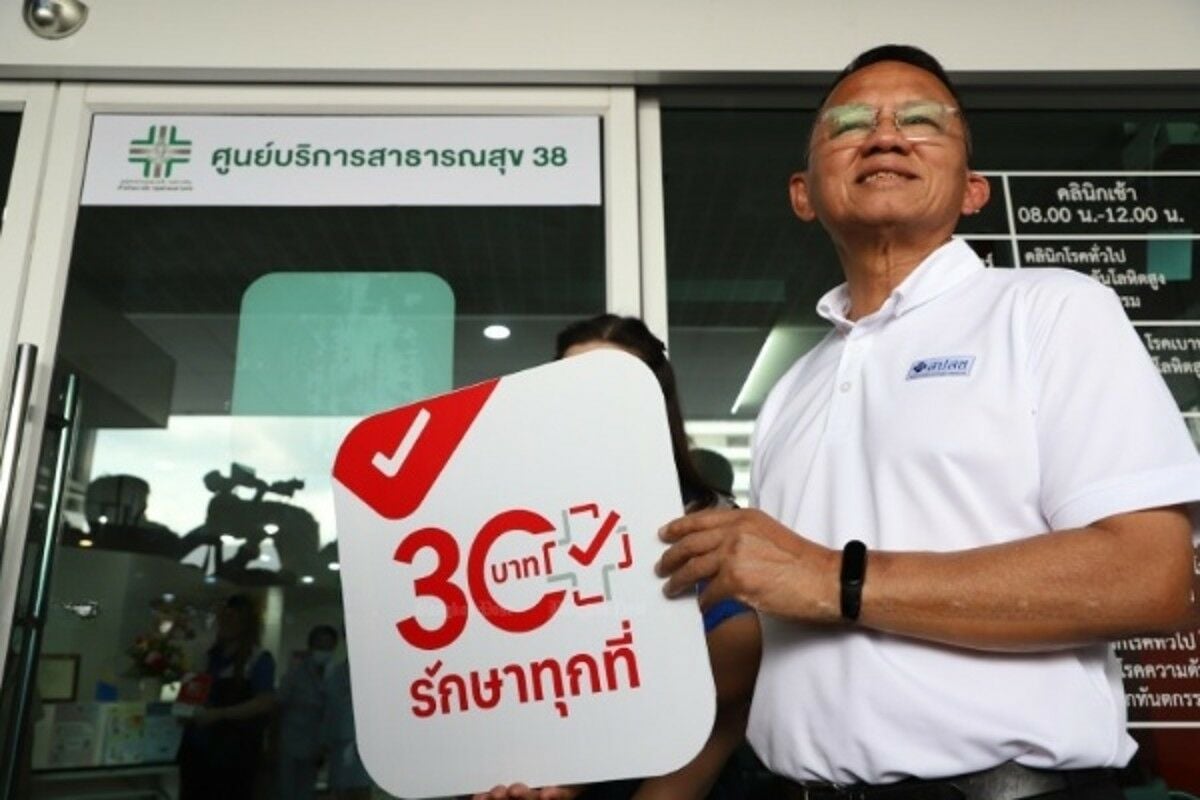Thailand’s universal healthcare won’t ‘break the bank’ says minister

Thailand’s Ministry of Public Health remains confident that the universal healthcare programme will not face financial difficulties, according to Health Minister Somsak Thepsutin.
The government has allocated a central budget of 5.9 billion baht for the scheme for the fiscal year ending September 30. Somsak provided this update following a National Health Security Board meeting, where participants discussed plans for disbursing the remaining funds before the fiscal year concludes.
The board focused on prioritising the payment of service fees to providers within the universal healthcare scheme before addressing other costs, such as a budget for members requiring medical care outside the National Health Security Office (NHSO) network. This strategy aims to help state hospitals manage their expenses more effectively.
According to Somsak, any leftover funds should cover each hospital’s share of the increased inpatient care costs. The central budget must be fully utilised by September 30, and any remaining funds should be carried over to the next year.
Somsak noted that the rate of inpatient expenses for the programme, known as the 30-baht or gold card scheme, will not drop to 7,000 baht per instance as initially recommended by the NHSO. Instead, the rate will be between 8,154 and 8,350 baht per unit.
The board also considered the observations of the National Economic and Social Development Council, which highlighted potential budgetary overlaps, such as the differing expenses for outpatients treated at primary care clinics versus large hospitals, said Somsak.
“There have been requests to equalise the treatment expenses. This matter has not yet been finalised because clinics and large hospitals have different treatment standards and equipment.”
Next year, a health promotion campaign will be launched to reduce the incidence of non-communicable diseases (NCDs) like diabetes and high blood pressure. Bangkok Post reported that this initiative could significantly lower treatment costs.
“We spent almost 100 billion baht fighting NCDs. If we can reduce the number of patients, we can dramatically lower the annual costs of medical care.”
Latest Thailand News
Follow The Thaiger on Google News:


























